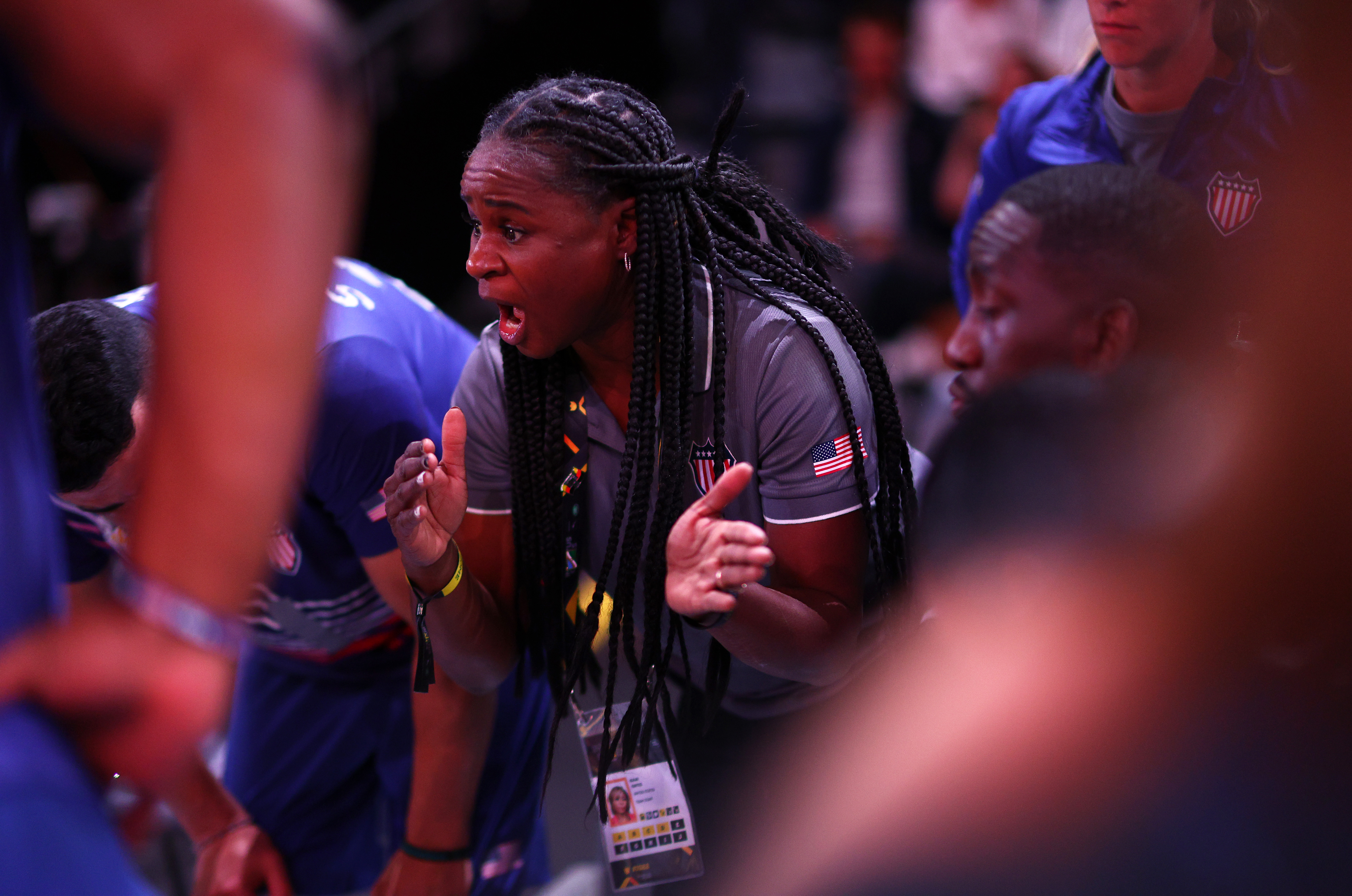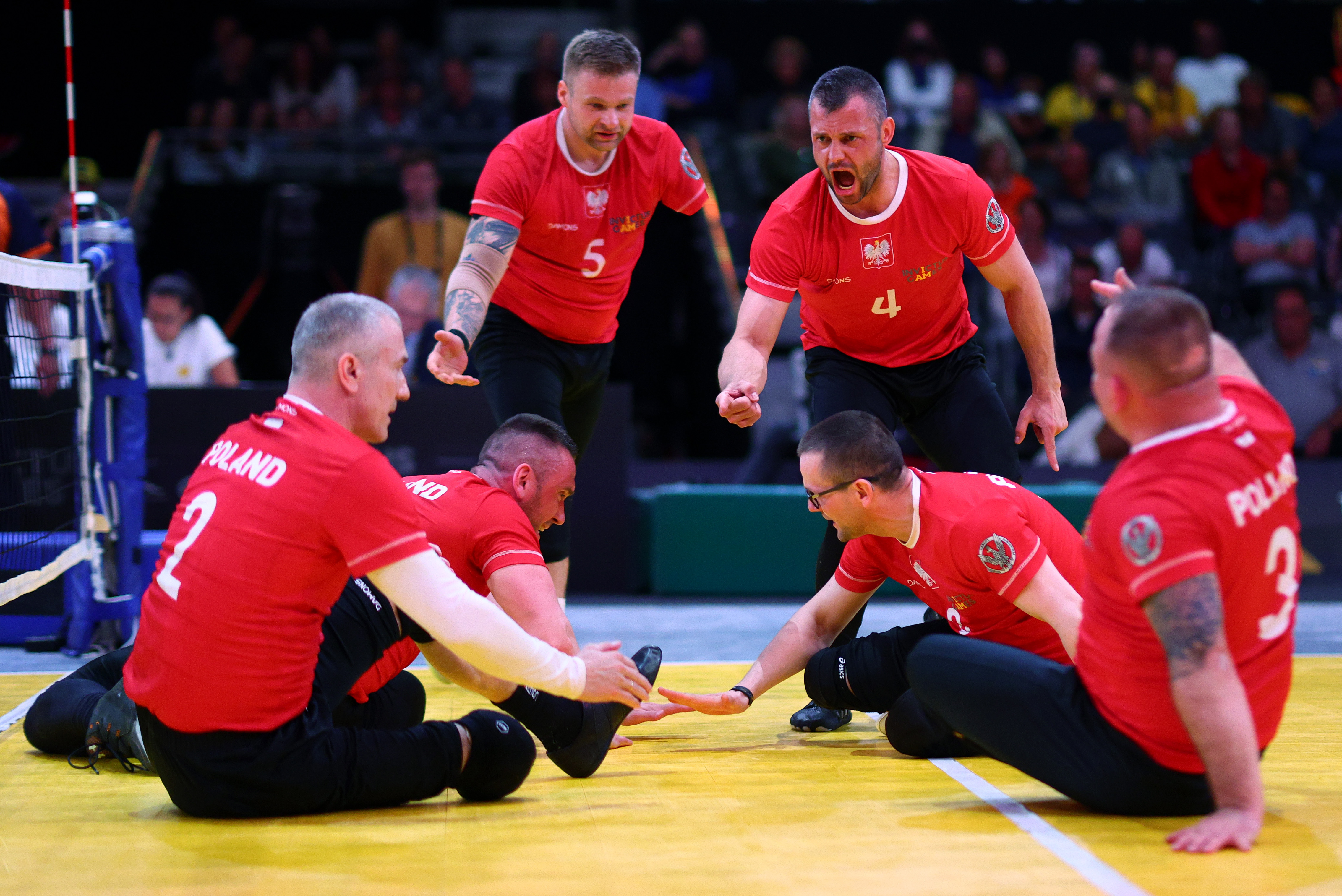This week, the Invictus Games returned to Canada, with an incredible 8 days of adaptive sports that bring together service members and veterans from across the globe. This isn’t just another sporting event. The Invictus Games are an international sport competition that seeks to harness the power of sport to promote the recovery of service members and veterans with physical and psychological illnesses and injuries.
Research has shown how beneficial the Invictus Games are, not only for the competitors but for their families too. However, one recurring question that popped up with program managers and coaches, especially from nations new to the Games, is “How?” The question of how programming can be delivered to achieve optimal participation benefits isn’t unique to the Invictus Games. It’s something all sports programs grapple with as well. Through a series of observations, interviews, and surveys, our team identified 71 best practice strategies representative of these international efforts to improve the quality of competitor experiences and outcomes.
These strategies provide insight as to how to approach competitive sport for adults with physical and psychological illnesses and injuries, who may have diverse goals for participation from improving their physical health, reconnecting with family and friends, feeling more like themselves or going back to work. What is unique about the Invictus Games approach is that medals are not the goal of competition. Instead, success is defined as personal progress.
This approach may resonate with diverse types of community sport programs, particularly masters-level athletes. In this blog, we highlight 3 themes that are present across the 71 strategies which can be adapted for masters-level athletes of all levels and abilities.
Theme #1: Expanding the definition and understanding of accessibility
Often when people hear the term “accessibility” within sport, they picture physical accessibility needs like ramps and transfer equipment, as well as accessible changing and restroom facilities. Others may consider accommodation from the perspective of sensory disabilities, including the presence of interpreters, and consideration of sign size and fonts, and tactile or lighting features. However, when training or competing for the Invictus Games, for many a key accommodation may also relate to psychological illnesses, a consideration that may not be commonly addressed within the sporting environment.
One psychological illness prominent at the Games is post-traumatic stress disorder (PTSD). Deliberate thought is given to potential triggers of PTSD based on knowledge of the military competitors. Within a sport competition, these triggers may include crowds, loud noise and music, video or photographic images, and what is happening in the external environment around training and competition facilities (for example, construction noise from buildings nearby).
Many coaches and team staff work with the competitor to understand their unique needs and then advocate for the competitor in team or competition meetings. Knowing what may lie ahead in terms of crowd size, music, and visuals, for example, provides an opportunity to prepare the competitor and come up with individualized solutions. For instance, one solution that is available at the Invictus Games is private quiet rooms, which provide competitors with PTSD a safe, low stimulation space to reset or manage triggers.
Considering this theme outside of the Invictus Games: Competitors with PTSD may be more prominently represented in a military adaptive sport environment. However, the lesson is a good one regardless of the specific type of medical condition:
- Accessibility can be defined as more than just physical access to a space.
- Adapted sport may benefit from broader inclusion of people with diverse medical conditions. For the Invictus Games, this has also meant the development of a new type of categorization system that allows all individuals to compete in adaptive sport together in an equitable way regardless of type of physical or psychological illness or injury.
- Speak to the competitor and gain an understanding of the factors that may facilitate or reduce their sense of equity and safety both in and around the training and competition environment and find ways to prepare for or avoid these scenarios.
Theme #2: Coach and team relationships
While our research did not use transformational leadership as a guiding framework, many of the strategies we identified aligned with its principles. Most notably, as seen in previous sport studies, our research captured the importance of the relationships amongst coaches, as well as the relationships between coaches and competitors as contributing to competitor outcomes.

Many of the strategies that related to this theme are applicable regardless of the community or sport setting. For example, one key strategy was coaches getting to know the competitor not just as a person in sport but as an individual. What was their family situation? What were their goals? Their likes? Their dislikes? Their challenges? The things that motivated them? What outside of sport was also competing for their time and interest? Understanding the person as a whole individual and not just a sport competitor helped set appropriate expectations for where sport could fit in the individual’s life and what type or level of support might be needed from the team.
Another strategy related to coaches respecting and getting to know all participants regardless of their level of skill or success in the sport. Some coaches may lose sight of the goal of the Games and spend more time with competitors that may win medals. It is important that coaches remember everyone deserves equal time, consideration, and coaching to achieve their individual goal, which (in the context of the Invictus Games) should not be medals-based but individual self-improvement.
A foundation of these respectful relationships is communication and building a sense of community. Many teams set up WhatsApp groups so everyone could stay in communication from selection day (when people found out if they made the team) and these groups were maintained after the Games so people could stay in touch. This long-term component was important. Competitors want to know that their coaches cared about them and not just their performance and that they were part of a real Invictus Games community. This meant facilitating opportunities to connect with coaches and teammates after the competition. Many teams identified one month after a competition as a good time to bring everyone together for a post-Games event and socializing. Some teams even continued to meet at regular intervals after the Games depending on the nation size and ease of transportation. It was crucial that communication and team cohesion not be left behind at the competition venue and continue when everyone returned home.
Considering this theme outside of the Invictus Games: Competitors’ need for different types of social support may vary based on their individual communities and levels of support from family and friends or in different life domains (for example, work, hobbies). However, opening the conversation to see what the individual and team wants and not assuming their goals, needs, or ideal type of coaching environment is an important step forward to creating quality experiences and outcomes.
Theme #3: Thinking Beyond Sport
A third concept that was represented across the findings was the importance of not focusing on the competition as the be all and end all of training and participation. The competition is important and serves as a critical and, for many, irreplaceable motivator for following challenging training programs. However, our research highlighted that change starts from day one when someone decides they want to participate in the Games and applies for a spot on their national team. At that point, they must reach out to others in their community to find teams or coaches, start being active, and make time for themselves and their recovery. Once selected, there is the added value of a new community of teammates and coaches and a sense of responsibility to train not just for yourself but to represent your country and meet your and your team’s goals.
While the Games may last a week, this period of training may last up to 12 months for some nations. This extended pre-Games period of regular interaction with teammates and coaches provides an unmatched opportunity to work on personal challenges, meaningful goals, and mastering skills. Different nations approach this training period in different ways. One nation develops individualized personal development plans for each competitor. Specifically, upon selection, each competitor sits down with the coach, social workers, and other team staff to identify their goals for their recovery and how they plan to use their Invictus Games training and competition experience as a springboard for these larger recovery goals and their life outside of sport. This plan is revisited regularly throughout the training period. In addition, time during training camps is dedicated to talking about strategies and skills outside of sport (like mindfulness, nutrition, sleep) that may support their larger goals.
This deliberate tailored approach has proven highly successful. In fact, many nations now seek to frame training not just as how training will help the competitor for the Invictus Games, but how training for the Invictus Games will help the competitor with the life they seek to lead the days, months, and years after the closing ceremonies. This approach is also helpful as it allows competitors and coaches to build plans for how to continue long-term sport and team engagement after the Games (such as finding local sport options to maintain sport participation or being a mentor or volunteer for future teams), an important consideration for maintaining health outcomes long-term.

Considering this theme outside of the Invictus Games: Outside of the Invictus Games, masters’ athletes may benefit from holistic approaches that consider sport within a broader life context. They may also seek to understand the role and contributions of sport in an individual’s life, along with how their training and competition may help them achieve their goals both within and beyond sport. Sport programs may also consider dedicating some of the sport training time to complementary topics that influence personal growth and development both within and outside sport, like psychological skills, mindfulness, nutrition, or sleep.
A further strategy from Invictus Games nations may also be useful for master’s athletes is considering long-term pathways for involvement and contribution such as opening the door to volunteering for the team or training to be a coach. This approach not only improves the experience of future teams who have access to peer support and mentorship but may also serve to support the long-term goals of the competitor.
Conclusion
As researchers continue to identify the benefits of sport, spending time understanding how those benefits can be achieved through well-defined delivery strategies and techniques for program staff and coaches is crucial. While this research was conducted within the context of the Invictus Games, the findings provide valuable information on how different delivery strategies, such as how sport is framed within the broader life goals and context of an individual, may influence participant outcomes. The best practice strategies represent guidelines that can be adapted by different programs based on factors such as team demographics and size, budget, and type of sport. Ultimately, the findings advocate for holistic consideration of the competitor within and outside of sport and a long-term view of the value of sport participation.
Funding: This research was funded by Forces in Mind Trust, a £35 million funding scheme run by the Trust using an endowment awarded by the National Lottery Community Fund.
Acknowledgment: Dr. Shirazipour would like to thank the Invictus Games Foundation, as well as the Invictus Games nations and competitors for their participation in this research study. She would also like to acknowledge the co-investigators of the research report: Emily Mayhew, PhD (Imperial College London); Jessica Capaldi, MA (Cedars-Sinai Medical Center); Bianca Luna-Lupercio, BS (Cedars-Sinai Medical Center); Nadia Hyunh, BA (Cedars-Sinai Medical Center); Yujie Cui, MS (Cedars-Sinai Medical Center); Vincius Calsavara, PhD (Cedars-Sinai Medical Center); Marcio Diniz, PhD (Cedars-Sinai Medical Center); M. Blair Evans, PhD (Western University); Amy E. Latimer-Cheung, PhD (Queen’s University); and Alice B. Aiken, PhD (Dalhousie University).